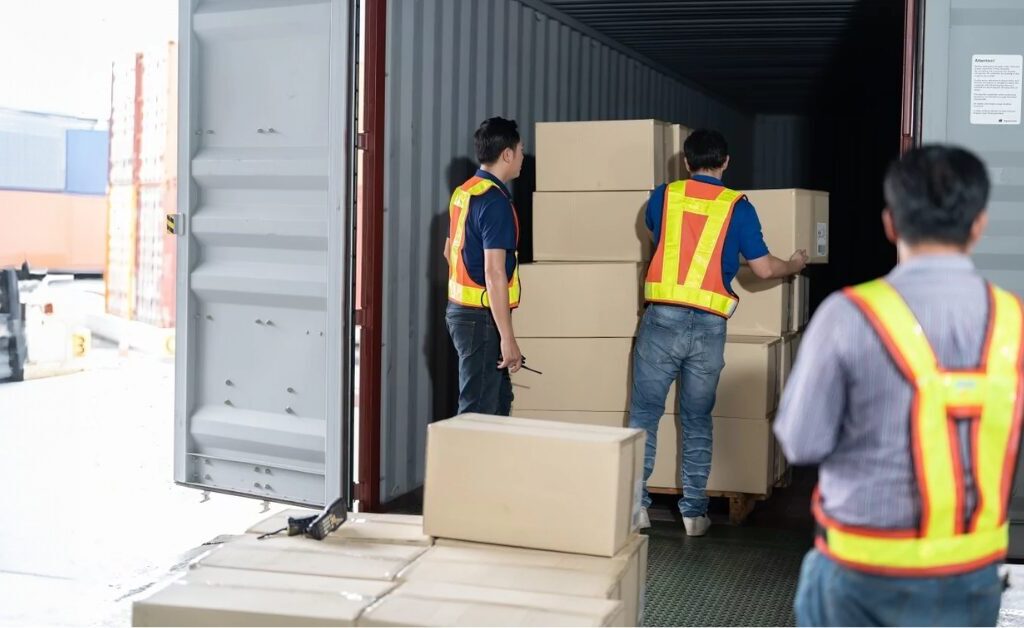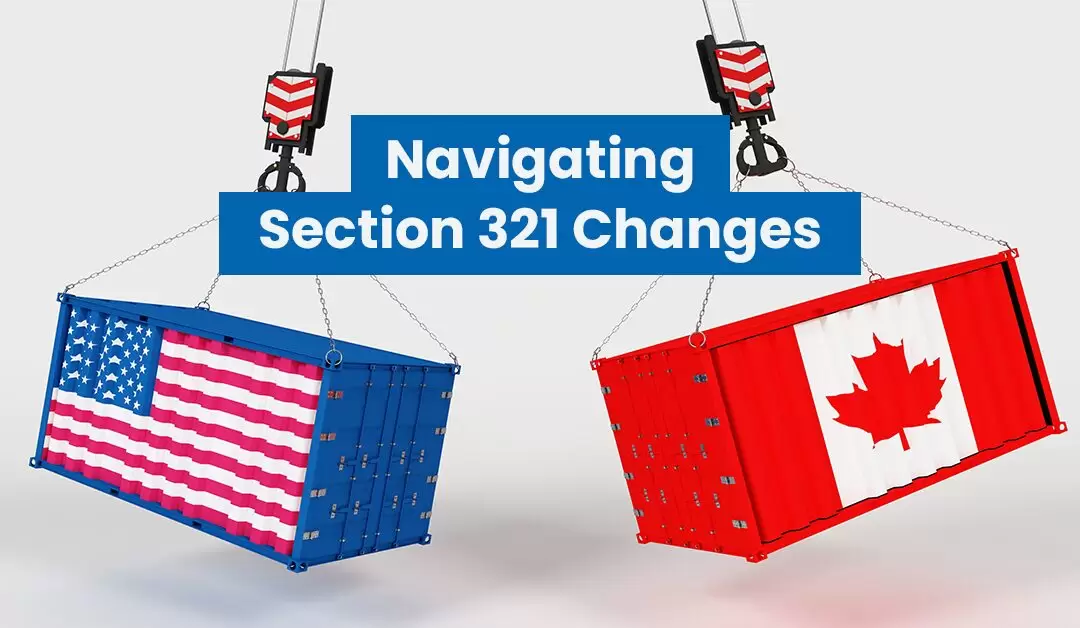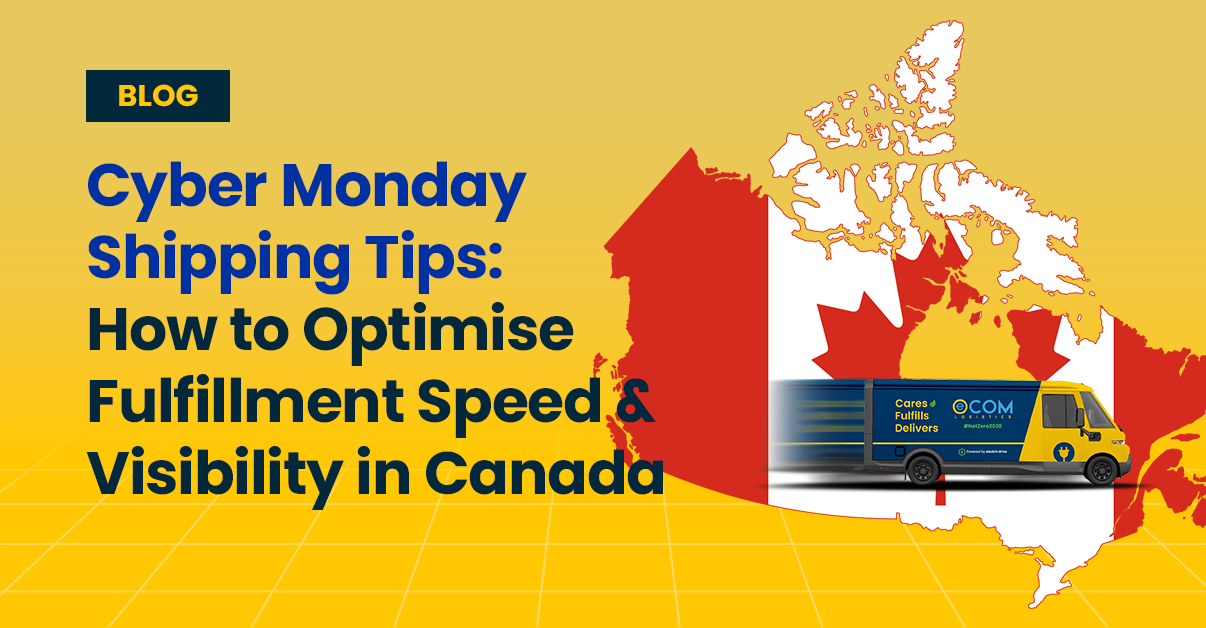The e-commerce landscape in North America has exploded in recent years, driving a surge in cross-border trade between Canada and the United States. For Canadian businesses, the ability to tap into the vast U.S. market has been a game-changer. A key factor facilitating this growth has been Section 321 of the U.S. Customs and Border Protection (CBP) regulations. This legislation simplifies the import process for low-value shipments, making it easier for Canadian businesses to sell products to American consumers.
However, recent proposed changes to Section 321 could disrupt this seamless trade. These changes might complicate customs procedures, reduce duty exemptions, and ultimately increase costs for Canadian e-commerce businesses. To remain competitive, it’s essential for these businesses to understand these changes and explore strategies to mitigate their impact.
Understanding section 321: The basics and benefits
Section 321 allows for the duty-free importation of goods valued at $800 or less into the U.S. This provision has been a key factor in reducing import costs and simplifying the customs clearance process, particularly those shipping a wide variety of products such as clothing, electronics, and home goods. For Canadian businesses, this has been instrumental in offering competitive pricing and faster shipping to American consumers.
Key benefits of Section 321 include:
- Reduced Import Duties: Businesses can avoid paying significant import taxes on their shipments, lowering overall costs.
- Simplified Customs Clearance: Less paperwork and faster processing times have streamlined the cross-border shipping process.
- Increased Competitiveness: Lower costs allow businesses to offer competitive pricing, enhancing appeal to American consumers.
For example, a Canadian business selling handmade home goods online can leverage Section 321 to offer its products at competitive prices without the burden of hefty duties. This not only reduces cart abandonment but also improves customer satisfaction by providing clear, upfront pricing without unexpected fees.

Proposed changes to Section 321: What’s new?
The U.S. government has proposed changes to Section 321, primarily targeting abuse of de minimis exemption by large e-commerce platforms, particularly from countries like China. These changes aim to tighten regulations and reduce the volume of duty-free shipments entering the U.S.
Key proposed changes include:
- Increased scrutiny on low-value shipments: Stricter controls on shipments taking advantage of the de minimis exemption, especially from countries like China.
- Reduced duty exemptions: Goods subject to tariffs, such as Section 321 tariffs on Chinese products, may lose their eligibility for the duty-free exemption.
- Stricter documentation requirements: More detailed paperwork, such as tariff classifications and certificates of compliance, will be required for shipments to qualify.
These changes, driven by concerns over the massive increase in shipments taking advantage of Section 321 (from 140 million to over 1 billion parcels annually), could have serious implications for e-commerce businesses.
Old vs. new regulations
Under the current regulations, goods valued under $800 can enter the U.S. without duties, with minimal documentation. However, the proposed changes introduce stricter rules:
| Feature | Old Rules | Proposed Changes |
|---|---|---|
| Country restrictions | No restrictions | Goods from countries like China that are subject to tariffs may lose eligibility |
| Documentation requirements | Minimal | Importers must provide detailed tariff classifications and certificates of compliance |
| Exemptions | Broad | Textiles, apparel, and certain consumer goods might be excluded |

Challenges for e-commerce businesses
The proposed changes to Section 321 present several key challenges that could disrupt the operations of e-commerce businesses relying on cross-border shipments:
- Documentation overload: The additional requirement for detailed documentation—proof of origin, certificates of compliance, tariff classifications— places a burden on small businesses. This can slow down processing times and increase administrative costs, negatively impacting operational efficiency.
- Longer processing times: Stricter customs scrutiny could lead to longer processing times, causing delays in shipments. For businesses that rely on fast shipping, these delays could hurt their ability to meet customer expectations, leading to dissatisfaction and lost sales.
- Loss of duty exemptions: If certain goods lose their eligibility for duty-free entry, businesses may face increased costs. For small e-commerce companies with thin margins, paying duties on previously exempt goods could significantly impact profitability.
- Non-compliance risks: Non-compliance with the new regulations—whether through missing documentation or shipping non-compliant products—could result in penalties, fines, or even the seizure of goods. Staying compliant with evolving regulations is critical to avoiding these risks.
Impact on consumer experience
The regulatory shifts under Section 321 could directly impact the consumer experience by causing:
- Delays: Increased scrutiny and documentation requirements may slow down shipping, frustrating customers accustomed to fast delivery times.
- Higher prices: The increased costs of duties and compliance may be passed on to consumers, raising the price of goods.
- Customer dissatisfaction: With slower shipping and higher costs, businesses risk losing repeat customers and damaging their reputation, particularly during peak shopping seasons.
While the proposed changes to Section 321 are designed to address loopholes and protect U.S. industries, they could introduce new challenges for e-commerce companies and affect both consumer experience and logistics. It’s crucial for businesses to prepare for these potential shifts by adapting their supply chains, improving documentation processes, and maintaining transparency with customers.

How 3PLs can help: Solutions for navigating Section 321 changes
Third-party logistics (3PL) companies can offer critical support to e-commerce businesses facing the challenges posed by Section 321 changes. By leveraging the expertise and resources of a fulfillment partner, businesses can mitigate the potential impact of these regulatory shifts.
1. Customs brokerage services
3PLs with customs brokerage capabilities can help businesses navigate complex customs procedures, ensuring compliance with the new Section 321 regulations. This includes managing detailed documentation, tariff classifications, and certificates of compliance, which reduces the risk of shipment delays or penalties.
2. Warehousing and fulfillment solutions
3PL fulfillment companies can offer warehousing solutions that allow businesses to strategically position inventory in the U.S. By storing products closer to customers, businesses can reduce reliance on cross-border shipping and avoid customs-related delays. Domestic fulfillment also improves delivery speed and customer satisfaction, which is critical in a competitive market.
3. Flexible shipping strategies
3PLs can help businesses develop more flexible shipping strategies by optimizing routes, consolidating shipments, or exploring alternative shipping methods. For example, a 3PL fulfillment partner may suggest shipping goods in bulk to a U.S. warehouse and using local carriers for last-mile delivery, thereby reducing customs complications and potential duties.
4. Risk mitigation and compliance management
Partnering with a 3PL with strong regulatory knowledge can ensure businesses remain compliant with evolving trade regulations. They can monitor changes in Section 321, provide guidance on best practices, and assist with documentation, helping businesses avoid costly non-compliance penalties.
5. Leveraging technology for compliance
Many 3PL fulfillment companies offer advanced technology solutions that automate the documentation process and provide real-time tracking of shipments. These systems ensure that all necessary paperwork is completed accurately and on time, reducing the administrative burden on businesses and minimizing the risk of customs delays.

Actionable tips for e-commerce businesses to stay compliant
To prepare for the changes to Section 321, e-commerce businesses should consider the following actionable steps:
1. Stay informed
- Monitor updates from U.S. Customs and Border Protection (CBP) and Canada Border Services Agency (CBSA).
- Attend industry webinars focused on cross-border trade regulations.
- Subscribe to trade and customs newsletters for the latest information on regulatory changes.
2. Partner with the right 3PL
- Choose a 3PL with experience in cross-border logistics and a strong understanding of customs regulations.
- Look for 3PL fulfillment partners that offer in-house customs brokerage services and have a proven track record of helping businesses navigate complex regulations.
3. Diversify shipping channels
- Use a mix of shipping methods (air, sea, and ground) to reduce reliance on a single method that may be impacted by customs changes.
- Consider warehousing inventory in both Canada and the U.S. to minimize cross-border shipments and reduce delivery times.
4. Optimize inventory and fulfillment
- Work with a 3PL to strategically place inventory in warehouses closer to your customer base.
- Use data analytics to forecast demand, optimize inventory levels, and plan for potential customs delays during peak seasons.

Preparing for tomorrow’s trade challenges
As e-commerce businesses face the challenges of regulatory changes, particularly under Section 321, partnering with a reliable 3PL can make all the difference. 3PLs offer the expertise, technology, and strategic solutions needed to navigate evolving trade regulations, streamline operations, and maintain a competitive edge in the marketplace.
About Ecom Logistics
Ecom Logistics is a leading provider of comprehensive logistics solutions for e-commerce businesses. We specialize in customs clearance, documentation management, and regulatory compliance, helping businesses simplify their cross-border shipping processes, while our advanced warehousing, fulfillment, and shipping optimization services ensure that your business stays competitive and compliant with the latest trade regulations:
- Customs clearance: We streamline customs processes, ensuring your shipments move smoothly across borders.
- Documentation management: We handle all necessary documentation, reducing your administrative burden.
- Regulatory compliance: We stay up-to-date on the latest trade regulations, ensuring your business remains compliant.
- Shipping optimization: We help you select the most efficient and cost-effective shipping methods.
- Warehousing and fulfillment: Our technologically advanced warehouses provide flexible storage and fulfillment solutions.
Ready to navigate the changes to Section 321 with confidence?? Contact us today.




